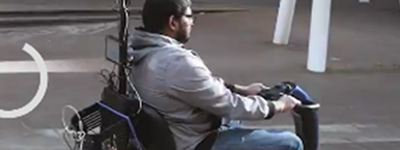UTS
Overview
The UTS Centre for Autonomous Systems (CAS) specialises in robotics research that creates positive change for government, industry and the wider community. CAS researchers undertake a comprehensive program of fundamental, applied and translational research, and form key industry partnerships based on the real-world application of robotics. CAS currently consists of eighty staff and students, and focuses on three key problems in robotics: “Robots in unknown and complex environments”, “Assistive Robotics and Human robot interaction” and “Robot Teams”. CAS industry engagement themes include infrastructure robotics, mining, transport and logistics.
The team representing the Centre for Autonomous Systems at the Dubai World Challenge For Self-Driving Transport, comprises of Maleen Jayasuriya (PhD student), Nathanael Gandhi (Undergraduate student), Professor Gamini Dissanyake (Distinguished Professor) and Dr. Ravindra Ranasinghe (Senior Research Fellow).
Out of the numerous interdependent subsystems required for a fully operational autonomous vehicle, the localisation system is a core and fundamental component. Our entry to the Dubai World Challenge is a modular platform-independent localisation system that does not require high resolution maps. Thus our solution aims to provide an accurate, reliable and resource efficient localisation solution that can function as an essential foundational subsystem, for autonomous transportation within first/last mile connections.
We argue that existing first/last mile connection infrastructure is primarily built for people on foot or at the very least small scale shuttles (with access to pedestrian pathways). Thus the proposed localisation system and low cost sensor package, is a self contained module that can be deployed onto any small scale vehicle (pods, shuttles, golf carts etc) operating in pedestrian environments such as pavements, footpaths and walkways. For real world operational validation and demonstration, our localisation module and sensor package is currently deployed on a mobility scooter.






